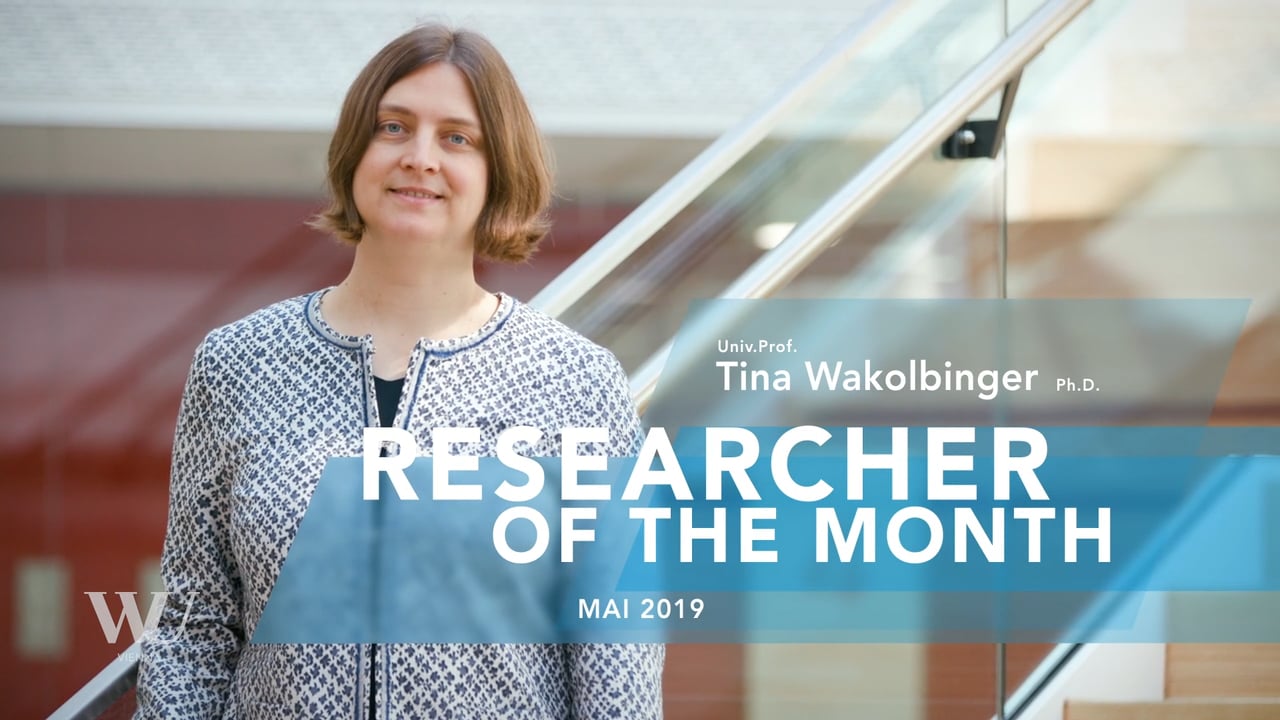Tina Wakolbinger

Tina Wakolbinger
Researcher of the Month
Earmarked donations complicate disaster preparedness measures
Natural disasters like the recent cyclone in Mozambique often result in massive humanitarian crises, requiring immediate relief from aid agencies. Private donors play a very important role, and respond especially well to fundraising campaigns for specific emergencies. Incident-specific, earmarked donations are not always the best way to help, however, according to studies conducted by WU professor Tina Wakolbinger.
Flooding, hurricanes, forest fires: Climate change is taking its toll. According to a 2018 UNO report, the number of natural disasters is increasing from year to year. More frequent catastrophes require ever more humanitarian aid, and aid agencies worldwide are feeling the squeeze. Disasters that feature prominently in the media can attract large amounts of donated funds, often even more than needed. WU Professor Tina Wakolbinger from the Institute for Transport and Logistics Management says that this is not always a good thing: “Donors who earmark their contributions for specific catastrophes rather than making general donations are often not helping as much as they think they are. Earmarked donations make the agencies more inflexible and often result in higher administrative costs.” In her work, the researcher focuses on humanitarian logistics, and her studies investigate the role played by donors as well as the direct and indirect effects of their donation behavior on disaster relief efforts.
Disaster areas with less media attention at a disadvantage
Using a variety of different mathematical models, Wakolbinger and her co-author demonstrated how widely the needs of donors and relief agencies diverged from each other. While it is an advantage for donors to have more choice and to have the option of earmarking their contribution for a specific purpose, this is only positive for aid agencies under certain circumstances. Especially in the case of emergencies with a high level of media attention, agencies often receive more in earmarked funds than needed, which becomes a burden to the agency if they can’t be re-purposed. “This was the case for many agencies during the 2004 tsunami catastrophe, for example,” explains Wakolbinger, “While at the same time, many smaller projects remain under-funded. From the agency perspective, earmarked donations are only helpful when large amounts of money are needed but donor interest is low, because they can help raise awareness for the cause.” In general, earmarked contributions strongly limit aid agencies’ flexibility and result in higher administrative costs.
Regular donations keep costs low
“Building storage warehouses for aid shipments in disaster areas, training volunteers and relief staff – all of these are important preparedness strategies that allow agencies to provide relief quickly in the event of an emergency,” explains Wakolbinger, “Studies have shown that every euro invested in preparation for a catastrophe saves €7 during the rebuilding phase. This is easier to achieve if donors contribute regularly to a general fund, without earmarking.”
Literature references:
Fuminori Toyasaki and Tina Wakolbinger (2018) Joint Fundraising Appeals: Allocation Rules and Conditions That Encourage Aid Agencies' Collaboration. Decision Sciences,https://doi.org/10.1111/deci.12341.
Christian Burkart, Tina Wakolbinger and Fuminori Toyasaki (2018), Funds Allocation in NPOs: The Role of Administrative Cost Ratios, Central European Journal of Operations Research 26:3, 307-330.
Tina Wakolbinger and Fuminori Toyasaki (2018). Impacts of funding systems on humanitarian operations (3rd revised version). In: Humanitarian Logistics: Meeting the Challenge of Preparing for and Responding to Disasters (3rd edition), edited by Peter Tatham and Martin Christopher, 41-57. London: Kogan Page.
Christian Burkart, Maria Besiou and Tina Wakolbinger (2016), The Funding - Humanitarian Supply Chain Interface, Surveys in Operations Research and Management Sciences, 263-273.
Fuminori Toyasaki and Tina Wakolbinger (2014), Impacts of Earmarked Private Donations for Disaster Fundraising, Annals of Operations Research 221:1, 427-447.
